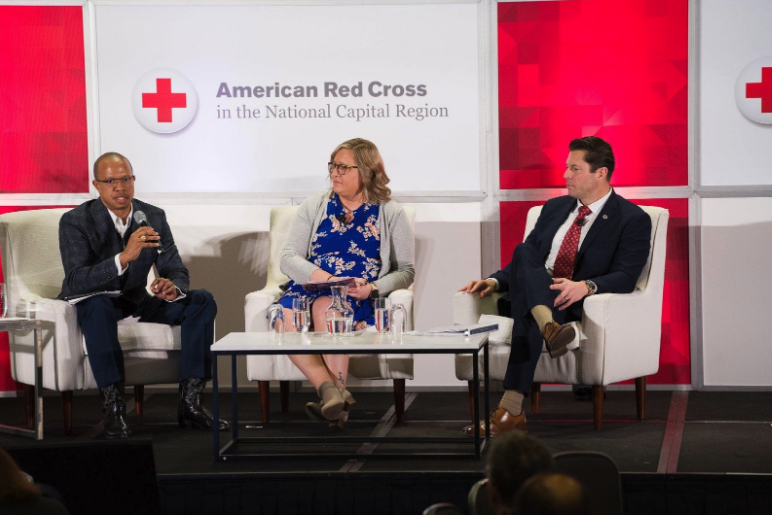Booz Allen and the Red Cross: Preparing Organizations for Disaster Response

From hurricanes and other extreme weather events to human-made threats, disasters can have a potentially devastating impact on people, organizations, and communities.
How can organizations better understand potential threats? What actions can they take now to increase their preparedness?
Booz Allen Senior Vice President Cedric Sims moderated a panel on risk, readiness, and regional response and what organizations can do to be ready at the 2nd Annual Disaster Preparedness Summit, hosted by the Red Cross National Capital Region and sponsored in part by Booz Allen.
Resources and wisdom borne from experience
With offices around the world, Booz Allen has much first-hand disaster preparedness to draw from. For example, Hurricane Michael decimated communities near the firm’s Panama City, Florida office, and wildfires temporarily displaced employees in California in 2018 and 2019. The firm also has had to contend with active shooter events, protests in global locations, and disruptive shutdowns of the federal government in Washington, DC.
Sims shared resources Booz Allen has developed in response to situations like these, including:
- The Disaster Support Guide, a living document of guidance that Booz Allen distributes during training sessions and in response to natural disasters
- Educational recaps of disaster response activities through podcasts and blog posts
- Programs like its Leave Sharing Program and Civic Responsibilities Leave that empower employees to help their colleagues and communities
5 steps for stronger preparedness
Drawing from Booz Allen’s emergency capabilities, Sims shared tactics organizations can take to improve their readiness:
Keep watch: Monitor threats against your assets in real time by combining HR data with information from government feeds and intelligence vendors.
Plan ahead: Establish Incident Command Teams at each office to respond to emergencies and connect to corporate infrastructure for support.
Manage risk: Keep track of employees working at high-risk locations.
Empower: Set up a 24/7 hotline for reporting emergencies and seeking assistance.
Inform: Use mass communications to send out guidance and alerts as needed.
Lastly – as disaster hits and employees mobilize to help one another, Booz Allen Hamilton decided to take action by launching the Booz Allen Employee Resilience Fund (ERF). The ERF is a charitable program that provides financial assistance to employees in times of qualified catastrophic disaster or personal hardship. This program offers a new example of our shared purpose and values in action—with a champion's heart, we stand ready to help our colleagues next door and around the world.
Learn more about the Summit and disaster response at Booz Allen.

